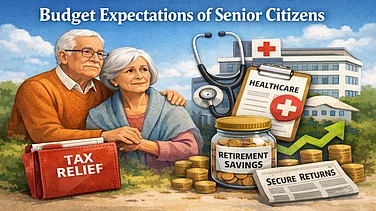Celebrations are in the air. The festive season has officially started in India and the stock market seems to be going hand-in-hand with the festive fervour. The benchmark Sensex index touched the 85,000-mark as September was coming to a close, and has been on a good run overall.
Patience would have paid long-term investors. Most of them would be making huge gains, depending on when they started investing, now that the markets are at more than thrice the level 10 years ago, when they celebrated Narendra Modi’s first victory as the Prime Minister of India by breaking the 25,000 barrier. Even those who entered the market at the start of the current bull run somewhere in 2020 would be reaping rich rewards in the fifth year of their investments.
At times like these, usually, hopes soar and the memory of market volatility and crashes fades. It is human nature to get tempted by the fantastic returns from the market and ride the wave. So, even at the risk of sounding like a party pooper, I would say that in these times one needs to exercise maximum caution. And the numbers show that.
Long-term investors would have gained the most in this bull run. That’s because, in the interim, markets had its ups and downs and was even bearish around 2015. According to ace investor Shankar Sharma, whom I interviewed recently, the markets were bearish for about five years before turning in 2020.
Short-term investors or individual traders, on the other hand, often lose out even in such an exuberant market phase. According to the latest study by capital markets regulator, Securities and Exchange Board of India (Sebi), around 93 per cent of individual traders in the equity futures and options (F&O) segment incurred losses totalling over Rs 1.8 lakh crore in the preceding three years.
The most worrisome part is that 75 per cent of these individual traders are from the low-income category earning less than Rs 5 lakh, and continue to invest despite consecutive years of losses. Assuming that this category of investors needs to first create an adequate security net for themselves, their decision to trade in the market just points to lack of awareness and the power of high market levels in luring gullible individuals. This is not to say that they can’t invest in the markets, but the act of doing that to make quick gains and not stay for the long term is proving dangerous for them. And yet, there’s little realisation about what they are doing, which simply points to lack of awareness and consumption of misleading information that is showing only part of the picture.
While the government is moving towards reforming the tax law, there are reforms needed in other areas as well. Stock market investing is one such area that can spell disaster for millions, who enter the market without understanding it. Data almost always has a story to tell, but just knowing that story is not enough. What will make a difference is the government taking a policy level step based on the learnings from these stories.














